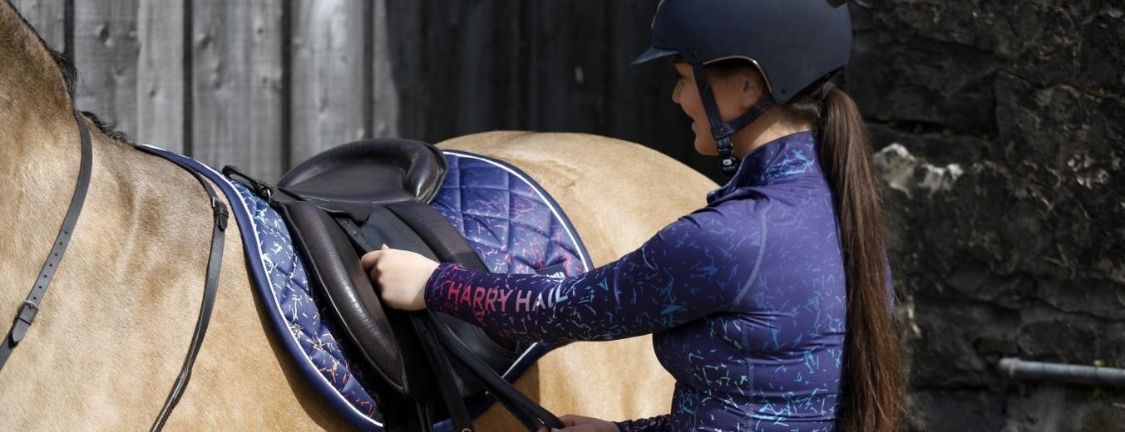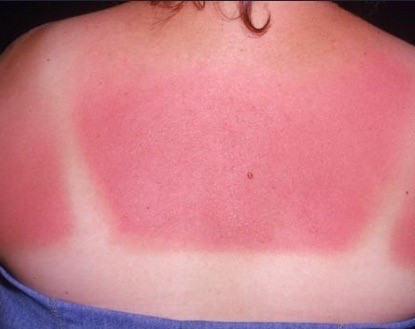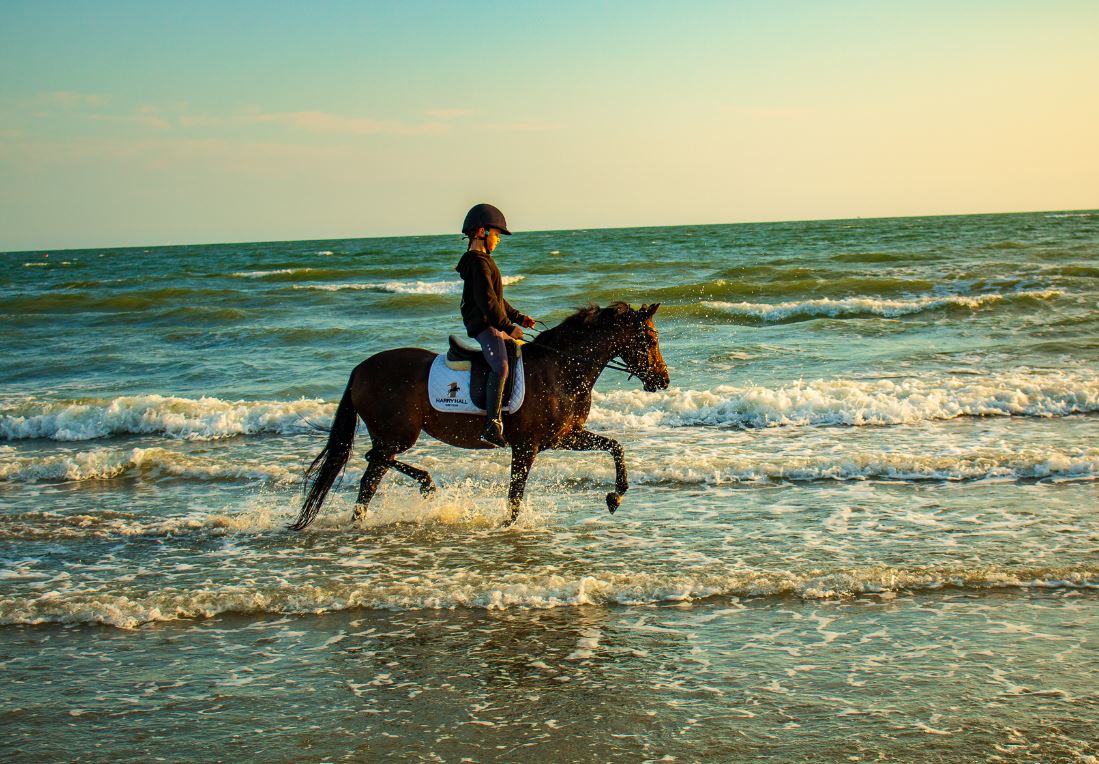
In the first of a monthly series of articles about first aid for horse riders, Cory Jones, Director at Medi-K and First Aid Training Co-operative considers the important things we need to know about first aid in the warmer summer months. Injuries don't always have to involve wounds or falls, and knowing what to do when the heat gets too much can help save lives.
Equestrians expose themselves to the element’s day in and day out, blistering heat in the summer and freezing temperatures in the winter. But how often do you stop and think of the consequences of exposure to the heat? Children are particularly vulnerable to the effects of heat, dehydration and dropping sugar levels as a result.
In the few summer months we get to enjoy in the UK we learn to deal with extremes, however on those few scorching hot days do you know the risks? Sunburn, dehydration, heat exhaustion and heat stroke are just a few things to consider, which must be treated quickly and correctly.
Sunburn

Sunburn is sometimes considered a mild burn but can have a serious impact on your health if it covers more than 5% of your total skin area – your palm is 1%. Although common and easily caused, sunburn can be exceptionally painful. Damage caused by UV rays, causes the skin to become painful, red, sore and hot, however in severe cases, the skin can blister or swell, the sufferer may also experience chills, a fever, dizziness, sickness and other signs of heat exhaustion.
Sunburn is hard to spot while the damage is being caused as it can take hours for the skin to turn red, however, the skin will feel warm to the touch. If you get sunburnt try to cool the skin and limit the damage. Get out of the sun, cool the affected skin by taking a cold shower/bath; take pain killers such as ibuprofen or paracetamol to relieve the pain; drink plenty of water to help keep you cool and to prevent dehydration.
Severe cases of sunburn may also need medical attention. The symptoms of this may include fevers, very high temperatures, blistering or swelling, dizziness, nausea or persistent headaches. The NHS website has more information about sunburn treatment.
Dehydration
Dehydration is a common problem in hot and humid weather and occurs when your body loses more fluid than you take in. Although not severe in itself, dehydration can make you lightheaded, dizzy and tired. This may have a knock-on effect on your ability to function properly and slow your reflexes which are vital when around horses. The best way to avoid dehydration is to ensure you drink plenty of water in hot conditions and when exercising – regularly throughout the day. Always remember that mucking out a stable is classed as moderate physical exercise so it would be wise to take a bottle of water to the yard with you during the summer months.
If you are suffering from dehydration it is vital to try to rehydrate yourself quickly by drinking fluids such as water, diluted squash or fruit juice. Try to avoid tea, coffee and fizzy drinks as these are less effective and although contain sugar, they are harder to drink in large amounts. A rehydration solution available from pharmacies is another great option as they replace the vital minerals, which become unbalanced when dehydrated. Sports drinks with electrolytes in them are good if you’ve been working very hard and sweating a lot but water should always be your first choice.
Heat Exhaustion
Heat exhaustion is a potentially serious condition that equestrians are vulnerable to as it normally occurs during heat waves, hotter than normal weather and during physical exercise.
With heat exhaustion, the body is no longer able to cope with the heat and must be treated with urgent medical attention. They will have sweated out a lot of fluid as well as salts. Their skin will be very wet and may even taste salty in places.
The signs of heat exhaustion are similar to dehydration however additional symptoms may include intense thirst, muscle cramps, sickness and a fast pulse. Ask the sufferer to lie down in a cool place, make them drink water. Raise their feet if they're feeling ill and dampen their skin with a cool, wet towel. If they are still unwell after 30 minutes in a cool place and have been drinking water seek further medical help.
Heatstroke
Heatstroke is more serious than heat exhaustion and occurs as the casualty continues to exercise in hot weather and essentially the body runs out of fluids to maintain basic functions such as sweating. Their skin will be dry. At this point, the casualty will be near collapse if they have not collapsed already. They may also have a fit or seizure, have a very high temperature, shortness of breath or are breathing very rapidly.
Treat heatstroke quickly, first aid here is vital, here are some things you can do to help:
- Wet the skin with copious amounts of water and remove any unnecessary clothing
- Fan them to keep them cool
- Call the emergency services on 999/112
- Put them in the recovery position if they lose consciousness.
Recognising the early signs of dehydration or heat exhaustion will prevent heat stroke.
The Health & Safety Executive (HSE) has produced a useful guide about Sun Protection for employers of outdoor workers
Regardless of the season or the temperature equestrians are vulnerable and as such we should all be prepared with correct first aid. Being aware of the signs and symptoms of someone with dehydration, heat exhaustion or heat stroke is the first step to helping prevent it! Enjoy the summer weather and remember – prevention is better than a cure, so consider a good quality high factor sunscreen, keep drinking fluids and cover up the skin when it’s very hot. Happy riding!
About Medi-K and First Aid Training Co-operative

Cory Jones is a Director of Medi-K and First Aid Training Co-operative. They work together to run highly respected equestrian specific first aid courses. He has been running first aid courses for outdoor workers for over 20 years.
Along with the training team at Medi-K, Cory has developed an equestrian first aid manual that can be downloaded to your phone or tablet.

